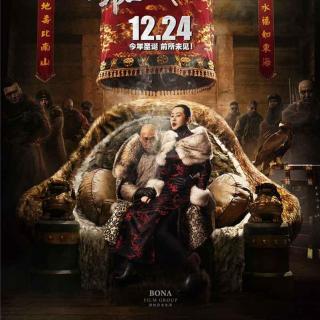
介绍:
When I was just a little boy, I always fancied Chinese epic war films, like "The Tunnel War", "The Mine War" and the "Three Great Campaigns" franchise. These films provided enough fanfare, action and heroism that a small boy desired. But when I was a bit older, I began to reflect on their storylines, which were based on Chinese people's struggle in the first half of the 20th century. I recognised their rich historical and ideological contexts and thought perhaps these films were uniquely made in China.
As it turned out I was wrong, and it took another few years before I realised that all cultures honoured heroes in one way or another. In the USA, one of the most effective ways popular with kids was Captain America, a comic book character who protected his country and people with patriotism and super powers. Captain Steve Rogers was the 20th-century equivalent to the heroes in Chinese war films.
But coming into the 21st century, the spirit of Captain America is continued in Marvel Studio's movie universe ambition and sold to overseas markets. This year Chinese audiences have paid more than 110 million US dollars to watch "Captain America: the Winter Soldier". In comparison, China has had no presentable products to speak of. The 2009 blockbuster "The Founding of A Republic" looked more like the footage of a star-lit red-carpet event than an adequate film. Most of the historical legends are being told and retold on the smaller screens of televisions, but sadly the quality of Chinese television on average is even lower than that of Chinese cinema.
Tsui Hark's 2014 action film "The Taking of Tiger Mountain" is the most recent attempt to modernise the heroic narrative of contemporary China. It is also the most successful in reaching a large audience.
First of all, older viewers are attracted to the film. Based on a model opera made during China's Cultural Revolution, "The Taking of Tiger Mountain" is about the story of a soldier who infiltrated and destroyed a gang of bandits in the snowy mountains of Northeast China in 1946. The model opera was immensely popular in its day, so older viewers are bound to show an interest in how the piece has been adapted. For the first time after Zhang Yimou's family drama "Coming Home", people above the age of 50 will bother to visit Chinese cinemas.
However there is no guarantee that they will like it. The adaptation is mostly meant for younger viewers who are the driving force behind the recent expansion of the Chinese movie market. With cutting-edge technologies, the filmmakers have been able to scale up the spectacle. For example, the movie now includes a scene where the main character fights a tiger, and the authenticity of the computer-generated animal is comparable to its cousin in Ang Lee's adventure drama "Life of Pi".
The visual gimmickry is present in every part of the 3D film, and the quick pacing helps make a very compelling story. But behind all the modernised storyline, there seems to be something that doesn't belong.
At first I blamed the good-looking but unskilled young actors and actresses, then near the end of the film the final showdown reminded me of how much the movie resembled a Marvel Studios product. Tsui Hark has always been known for his skills with drawing pens and storyboards, it is how he gets the ideal shots for his movies. But this time, I think he has overplayed the visual stunt and forced a layer of comic style on the story and characters, which kind of takes the heroism out of the equation.
And, by the way, when I mentioned the good-looking but unskilled young actors and actresses, I wasn't speaking about lead actor Zhang Hanyu and his antagonist Tony Leung, they are not really that young anymore and they are pretty impressive in their roles.
大家还在听

